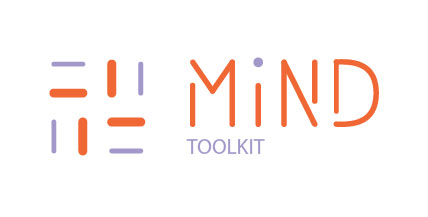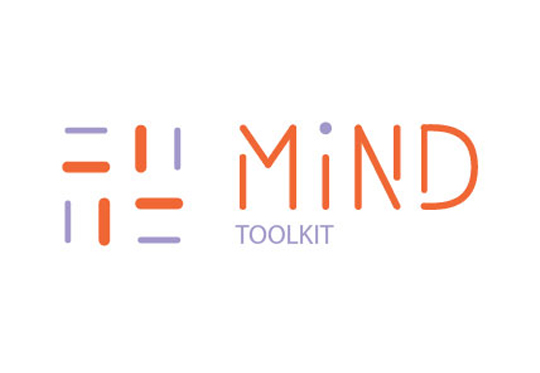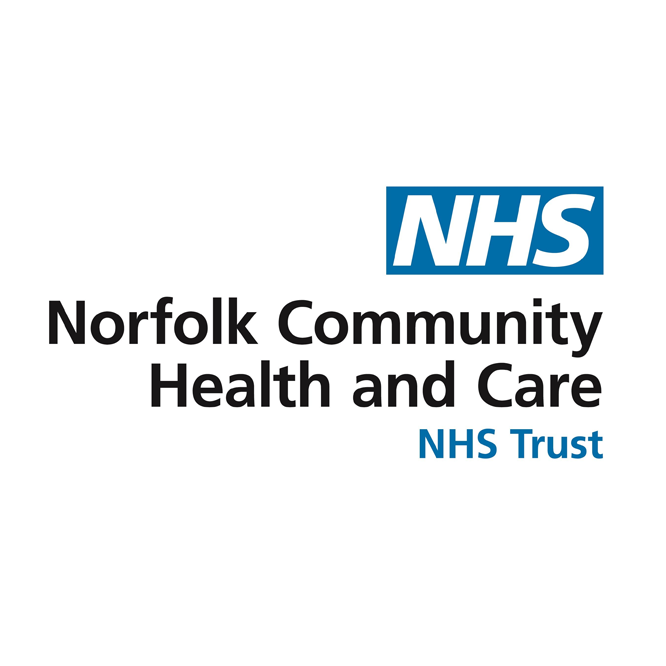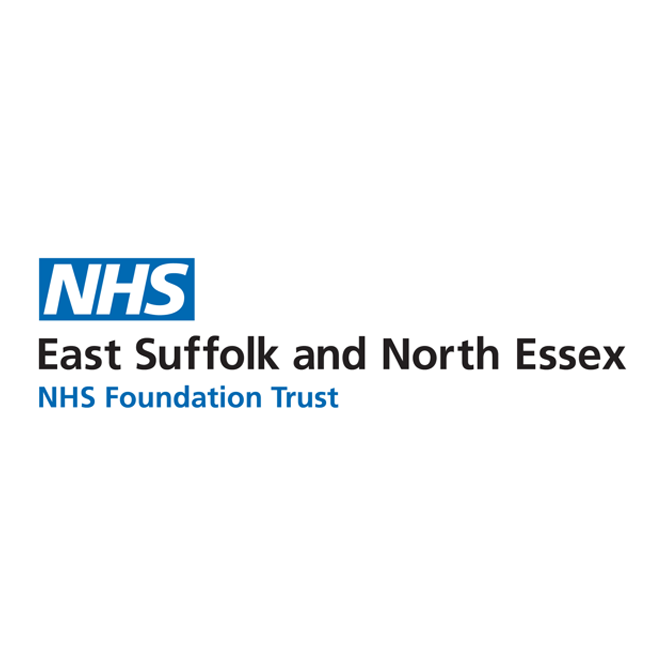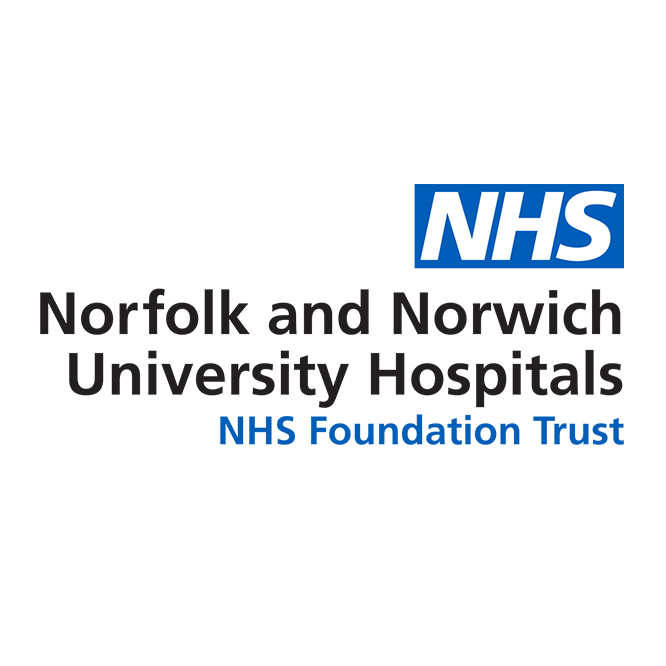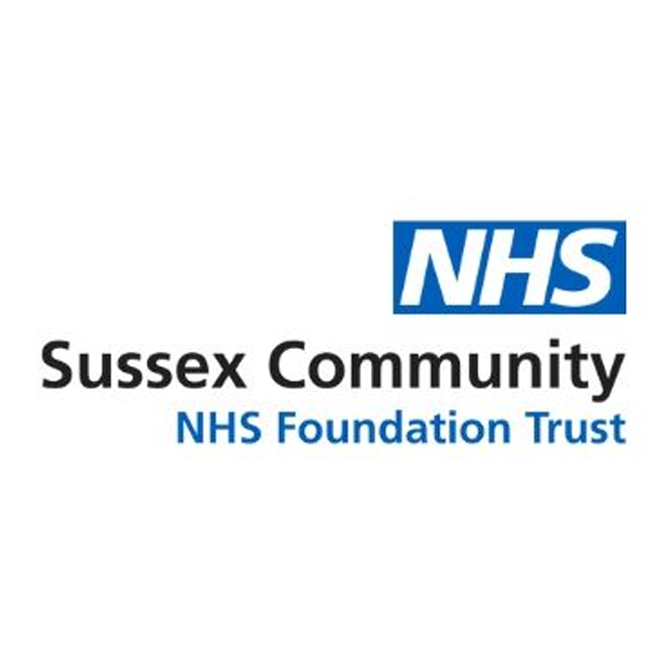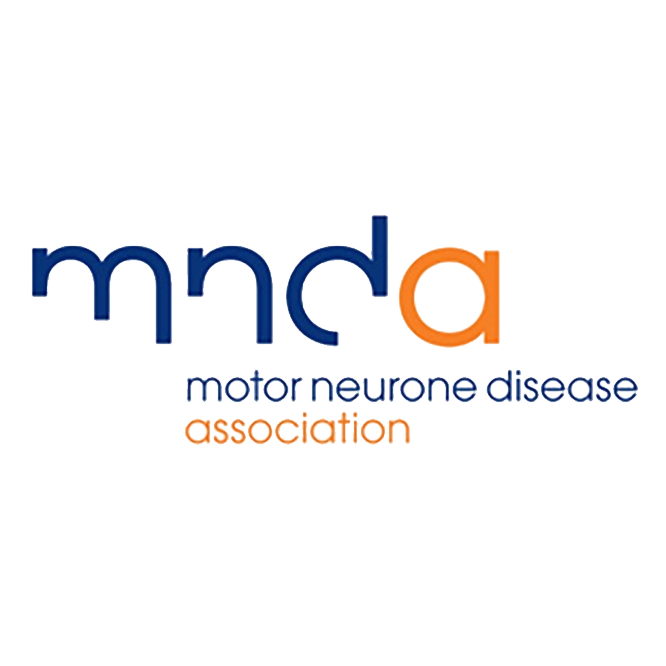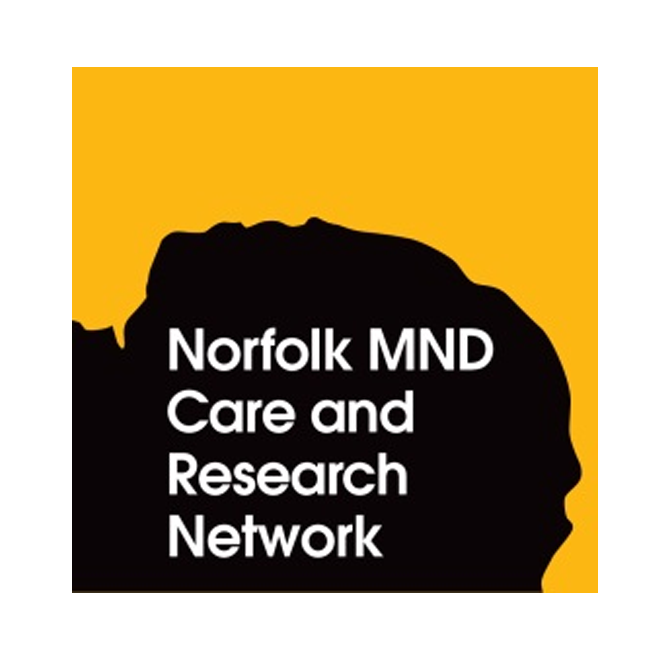
MiNDToolkit is a novel psychoeducational research platform
We successfully completed a feasibility trial, which was a study investigating if the MiNDToolkit was acceptable for carers and healthcare professionals. This feasibility study also investigated if it was feasible to use MiNDToolkit in NHS settings and in a future larger national trial. The feasibility study confirmed that MiNDToolkit was acceptable to both family carers and healthcare professionals, and that the MiNDToolkit was feasible to be tested in a larger national randomised controlled trial. We are now currently trying to secure research funding for the national randomised controlled trial, so that we can test the platform efficacy in supporting carers in the future. Efficacy testing will investigate questions like: does MiNDToolkit help carers better manage behavioural symptoms in MND? Does MiNDToolkit help carers feel better skilled as carers?
Behavioural changes
Up to 50% of people with MND experience behavioural changes
Carer support
Behavioural changes are associated with greater stress in carers
Multifaceted platform for management of behavioural changes in Motor Neurone Disease
Carers
such as family members, friends, paid carers can have access to a personalized symptom management plan for the duration of the research study
Healthcare professionals
can access training for management of behavioural symptoms to support carers and improve their practise
Researchers
monitor and manage the MiNDToolkit research study in the background
Integration
the MiNDToolkit brings together carers and healthcare professionals into one platform
Dissemination of the MiNDToolkit
Please click here to learn more about all events where we have presented about MiNDToolkit
Study results & Dissemination of the MiNDToolkit
-
What were the main results and findings from the MiNDToolkit feasibility trial?
Carers told us that learning about behavioural symptoms was like a ‘lightbulb moment’. Carers who used MiNDToolkit were interviewed at the end of the study. What they said was analysed following rigorous methodology. Carers’ experience of behavioural symptoms was particularly distressing when symptoms were apparently out of context, i.e., they did not know they were common symptoms in MND. However, MiNDToolkit appeared to support learning that behavioural symptoms were part of MND.
Content of MiNDToolkit resonated with carers, who reported learning about the full picture of MND, which led to acceptance and use of newly learned strategies. Engagement with the platform was good.
Greater and nuanced involvement from HCPs seem important to support management of behavioural symptoms. For future studies, carers suggested including adding a paper booklet to accompany the intervention and creation of new modules on emotional lability, changes in relationships, and transitioning to a care home.
Full details on the scientific results can be found here.
-
We confirmed that the MiNDToolkit intervention was acceptable by healthcare professionals.
Healthcare professionals said that MiNDToolkit was a beneficial and acceptable resource for them, with potential to increase knowledge and confidence for their work with MND families. Professionals also said that MiNDToolkit could help them in better recognise, identify and manage behavioural symptoms in MND.
However, some professionals were worried that raising questions about behavioural symptoms would be burdensome to carers – for this reason, sometimes they did not raise the potential presence of behavioural symptoms in their appointments with the families. Professionals also thought that family carers would take the initiative to ask for support from clinicians instead. Unfortunately, it appears that many carers do not know about behavioural symptoms and therefore cannot ask about something that they do not fully know. Carers may mistake behavioural symptoms, such as lack of empathy, as emotional reactions from the person with MND. This can be hurtful if symptoms are severe.
Read more about the family carers’ perspectives above.
Full details on the scientific results of the study on healthcare professionals can be found here.
-
We confirmed that the MiNDToolkit intervention was feasible to be tested in a larger national randomised controlled trial.
This means that we can now test the MiNDToolkit with a larger number of carers, to find out if MiNDToolkit can do what it is intended to do (efficacy). MiNDToolkit targets carers’ skills in managing behavioural symptoms in MND, and also targets carers’ skills in looking after themselves well, which is technically called ‘carer self-efficacy’.
Full details on the scientific results can be found here.
Events
-
December 2024: 35th ALS/MND International Symposium, Montreal, Canada
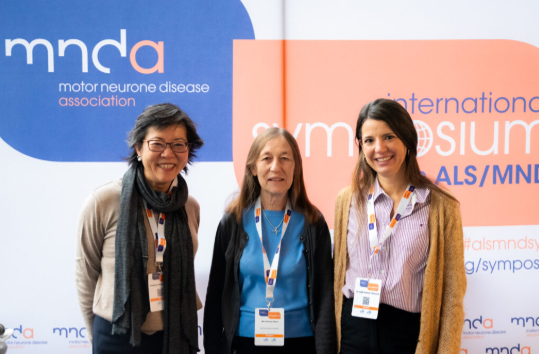
A group of us travelled to Montreal to take part in the ALS/MND Symposium. Our Patient Public Involvement and Engagement lead, Sue Heal, joined us. You can read her experience here.
Professor Eneida Mioshi (left), Sue Heal (middle) and Dr Polly Trucco at the 35th International Symposium.
- October 2024: MND Association Community of Practice Annual Meeting, Birmingham, UK
- June 2024: MND Association Care Centres Coordinator Meeting, Leicester, UK
-
June 2024: European Network to Cure ALS (ENCALS), Barcelona, Spain

We travelled to Barcelona to take part in the ENCALS annual meeting
Our MiNDToolkit process evaluation lead, Dr Thando Katangwe-Chigamba, presented findings from the MiNDToolkit.
- March 2024: SouthEast MND Network Study Day, Tunbridge Wells, UK
- February 2024: UMC Utrecht, The Netherlands (online)
- January 2024: MND Association Webinar, Community of Practice, UK (online)
- December 2023: 34th ALS/MND International Symposium, Basel, Switzerland
-
September 2023: MiNDToolkit Symposium, London, UK
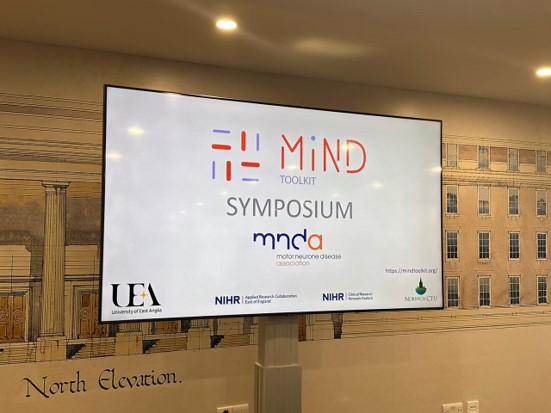
A fully hybrid meeting was held in London.
Professionals involved in MiNDToolkit, and research colleagues, joined us to hear the main results from the feasibility trial.
Prof Sharon Abrahams was our keynote speaker
Frequently Asked Questions
-
How do I get involved in this research study?
The feasibility study has now been completed. If you would like to be updated regarding future research opportunities involving the MiNDToolkit, please contact the Chief Investigator. Prof Eneida Mioshi: e.mioshi@uea.ac.uk
-
Is this study for the person with MND, or the carer, or both?
The MiNDToolkit was designed to support the carer directly (e.g. family or very close friends). Only carers were recruited to the study, but participation in the study will, in future, also benefit the person diagnosed with MND
-
Was the MiNDToolkit feasibility study registered?
Yes, the MiNDToolkit study is registered with: ISRCTN
-
I am a healthcare professional interested in the MiNDToolkit. Can I use it?
Unfortunately you cannot use the MiNDToolkit as a clinical toolkit yet because the MiNDToolkit is still undergoing research scrutiny. But if you would like to be updated regarding future research opportunities involving the MiNDToolkit, please contact the Chief Investigator. Prof Eneida Mioshi: e.mioshi@uea.ac.uk
Our research team

Eneida Mioshi
Lead Investigator, UEA
Helen Copsey
MND Specialist, Norfolk MND Care and Research Network
Michael Hornberger
Co-Investigator, UEA
Lee Shepstone
Co-Investigator, UEA
Emma Flanagan
Junior Manager, Norwich Clinical Trials Unit
Polly-Anna Ashford
Senior Manager, Norwich Clinical Trials UnitContact us
Location:
University of East Anglia
